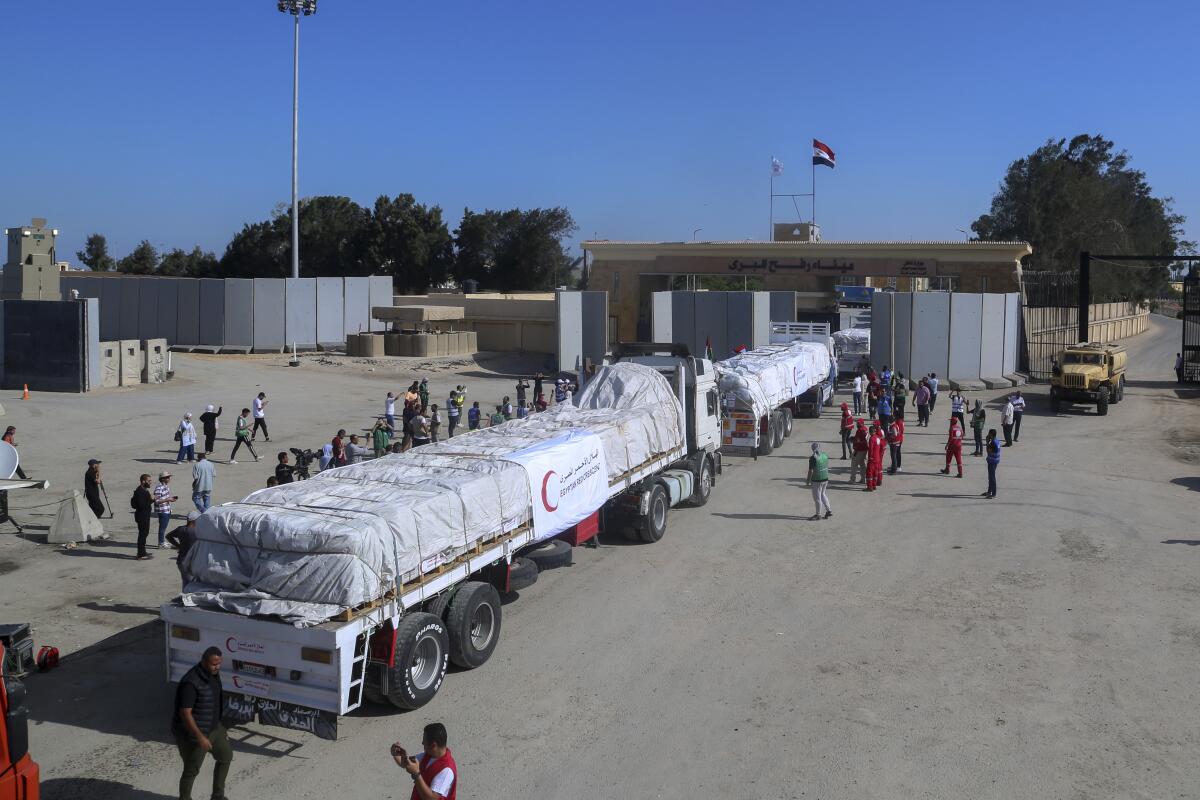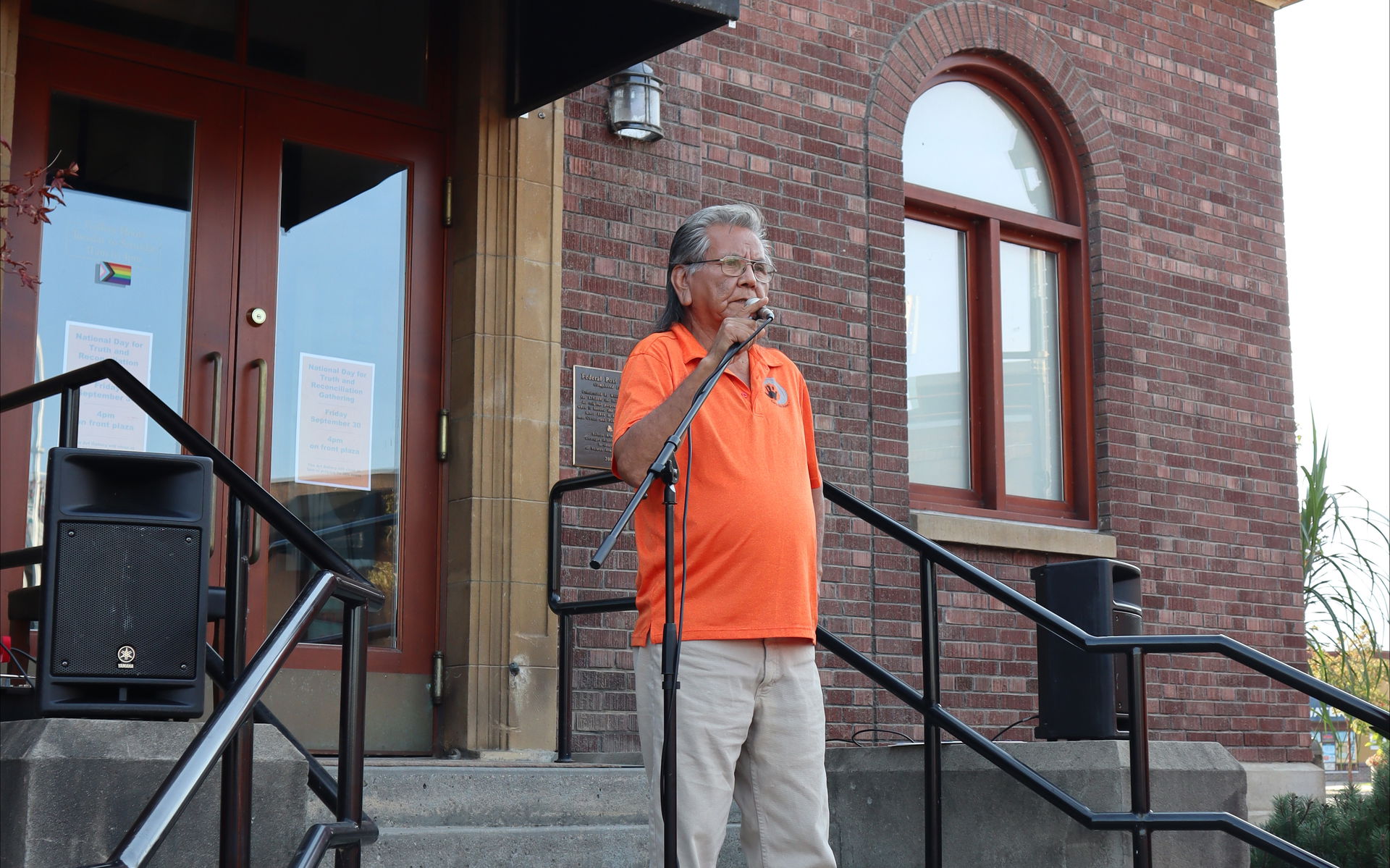Israel Under Pressure To Address Gaza's Humanitarian Needs By Lifting Aid Blockade

Table of Contents
The Severity of the Humanitarian Crisis in Gaza
The consequences of the prolonged Gaza aid blockade are devastating and far-reaching, creating a complex web of interconnected challenges that threaten the very survival of the population.
Food Insecurity
Widespread malnutrition plagues Gaza, particularly among children and pregnant women. The World Food Programme (WFP) reports that over 60% of the population is food insecure, relying heavily on food aid for survival. Limited access to arable land, coupled with the destruction of agricultural infrastructure due to repeated conflicts, further exacerbates the problem. Many families struggle to afford even basic staples, leading to a drastic decline in nutritional intake.
- High rates of malnutrition among children under five.
- Dependence on food aid for a significant portion of the population.
- Restricted access to fertile land and agricultural resources.
Access to Healthcare
The healthcare system in Gaza is on the verge of collapse. Years of blockade have resulted in a severe shortage of essential medical supplies, equipment, and specialized medications. The lack of qualified medical professionals and damaged infrastructure further hinder access to vital healthcare services. Chronic diseases, like diabetes and heart conditions, are often left untreated due to limited access to proper care. Furthermore, the trauma caused by repeated conflicts significantly strains the already overburdened healthcare system.
- Severe shortage of essential medicines and medical equipment.
- Limited access to specialized medical care.
- Damage to healthcare infrastructure due to conflict.
- High rates of chronic diseases due to lack of treatment.
Water and Sanitation
The water crisis in Gaza is catastrophic. Over 95% of the groundwater is contaminated with saltwater intrusion and sewage, making it unfit for drinking or irrigation. This leads to frequent outbreaks of waterborne diseases, particularly among children. The limited access to clean water and sanitation facilities poses a major threat to public health and further exacerbates the already dire humanitarian situation.
- High levels of saltwater contamination in groundwater.
- Frequent outbreaks of waterborne diseases.
- Limited access to sanitation facilities.
- Severe impact on public health.
Economic Devastation
The Gaza aid blockade has crippled the economy, resulting in exceptionally high unemployment rates exceeding 50%, and widespread poverty. The limited access to international markets and the destruction of infrastructure have severely hampered economic activity. The lack of opportunities leaves many Gazans with no means to support themselves or their families, leading to a vicious cycle of poverty and despair.
- Extremely high unemployment rates.
- Widespread poverty and economic hardship.
- Limited access to international markets.
- Destruction of infrastructure hampering economic activity.
International Pressure to Lift the Gaza Aid Blockade
Growing international concern over the humanitarian crisis in Gaza is translating into increasing pressure on Israel to lift the aid blockade.
UN Resolutions and Reports
Numerous UN resolutions and reports have highlighted the dire humanitarian situation in Gaza and called for the immediate lifting of the blockade. These documents cite numerous human rights violations and the devastating impact of the restrictions on the civilian population. [Link to a relevant UN report]. [Link to another relevant UN resolution].
Statements from International Organizations
Organizations like the World Health Organization (WHO), UNICEF, and numerous human rights groups have consistently condemned the blockade and urged Israel to take action. They have highlighted the catastrophic impact on the health, well-being, and human rights of the Gazan people. [Include a quote from a relevant official].
Pressure from Individual Countries
Several countries have publicly criticized the blockade and called for its lifting, citing humanitarian concerns and the need for a just and lasting solution to the crisis. [Mention specific countries and their statements].
Human Rights Concerns
The Gaza aid blockade raises serious human rights concerns, violating fundamental rights such as the right to health, food, water, and economic well-being. These violations are clearly documented in numerous reports from human rights organizations. [Link to a human rights report].
Israel's Justifications for Maintaining the Blockade
Israel justifies the blockade primarily on security grounds, aiming to prevent Hamas from acquiring weapons and resources that could be used against Israeli civilians.
Security Concerns
Israel argues that the blockade is necessary to prevent the smuggling of weapons and materials that could be used to launch attacks against its citizens. They point to past instances of weapons smuggling through tunnels and other means.
Preventing Hamas Access to Resources
A key aspect of Israel's justification is that the blockade prevents Hamas, the ruling political party in Gaza, from accessing resources that could be used for military purposes.
Potential Solutions and Pathways Forward
Addressing the humanitarian crisis in Gaza requires a multifaceted approach that considers both humanitarian needs and security concerns.
Phased Lifting of the Blockade
A gradual and carefully monitored lifting of the blockade could alleviate immediate suffering while mitigating security risks. This phased approach would need to include robust mechanisms for monitoring and preventing the smuggling of weapons and illicit materials.
International Monitoring and Oversight
International monitoring and oversight mechanisms are crucial to ensure that aid reaches the intended beneficiaries and that the lifting of the blockade does not compromise security. This could involve collaboration between international organizations, NGOs, and the involved parties.
Increased Humanitarian Aid
A significant increase in international humanitarian aid is urgently needed to address the immediate needs of the Gazan people. This aid must include essential supplies such as food, medicine, and clean water, as well as support for economic development and infrastructure repair.
Conclusion:
The humanitarian crisis in Gaza is undeniable and demands immediate action. The prolonged Gaza aid blockade has created a catastrophic situation, leaving millions facing dire shortages of essential resources. The international community's pressure on Israel to lift the blockade is mounting, but a lasting solution requires addressing both humanitarian needs and security concerns. We must advocate for a phased lifting of the blockade, coupled with increased international aid and robust monitoring mechanisms. Contact your representatives, support humanitarian organizations working in Gaza, and demand a just resolution to this crisis. Ending the Gaza aid blockade is not just a humanitarian imperative; it is a moral obligation. The time for action is now.

Featured Posts
-
 Nyt Spelling Bee February 25 2025 Clues Answers And Spangram
Apr 29, 2025
Nyt Spelling Bee February 25 2025 Clues Answers And Spangram
Apr 29, 2025 -
 Reliance Industries Stock Jumps After Positive Earnings Report
Apr 29, 2025
Reliance Industries Stock Jumps After Positive Earnings Report
Apr 29, 2025 -
 The Hagia Sophia 1600 Years Of History And Resilience
Apr 29, 2025
The Hagia Sophia 1600 Years Of History And Resilience
Apr 29, 2025 -
 Fatal Wichita Black Hawk Crash Pilots Last Second Error
Apr 29, 2025
Fatal Wichita Black Hawk Crash Pilots Last Second Error
Apr 29, 2025 -
 Culture Department Hosts Successful Canoe Awakening Celebration
Apr 29, 2025
Culture Department Hosts Successful Canoe Awakening Celebration
Apr 29, 2025
